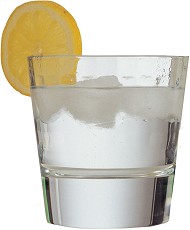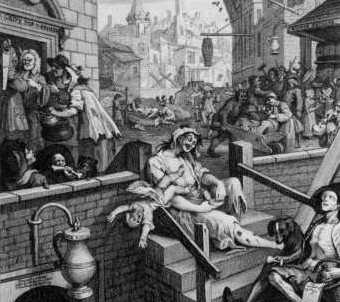 |

|
|

|
|
|
 |

home
about
features
A-Z
books

|

|

Protz:
features
reviews
tastings
|

| |
Demonizing drink
by Willard Clarke, 05/06
Alcohol has not had a good press of late. George Best was scarcely in his grave when Charles Kennedy's struggle with alcoholism hit the headlines, just as surveys by the Office for National Statistics and the Lancet magazine
showing that liver disease is rising faster in Britain than any other European country.
Mortality among men from liver cirrhosis doubled in Scotland and rose by two-thirds in England and Wales during the 1980s and 1990s, while rates for women went up by about half during the same period.
The consumption of alcohol doubled in Britain between 1960 and 2002. The most alarming fact is that while liver disease was low in England, Scotland and Wales in the 1960s compared to the mainly wine-drinking countries of mainland Europe, Britain � Scotland in particular � now has one of the highest rates.
One point that stares us in the face is that all the problems of heavy drinking and the illness and death that follow have increased in line with a substantial rise in the consumption of strong alcohol. In the 1960s, the British drank tiny amounts of wine. Today, wine outsells beer in the take-home sector, while the consumption of spirits has grown, and alcopops and breezers, which did not exist 20 or 30 years ago, are widely consumed, by young people in particular.
Liver disease is falling in France, Italy and Spain as wine consumption declines. Beer is now the trendy drink among the young in these countries.
|
|

|
In the case of the unfortunate Mr Kennedy, according to the Guardian, a serious rather than a frivolous paper, lunch for him would start with two large gins before the first
bottle of wine arrived. Like all people with a drink problem, he wanted the quick buzz of strong alcohol, rather than the slower pleasure of a couple of pints.
In the 18th century there was an epidemic of gin drinking in England. Rot-gut gin was destroying lives and families. Gin shops sold their product for one penny a pint. People died in vast numbers from cirrhosis of the liver. In London there were twice as many burials as baptisms.

|
|
William Hogarth's savage portrait of Gin Lane in 1751 (left) stressed the terrible dissolution of the time: a house in falling down, a corpse is being put into a cart and a woman is so drunk that she is dropping her baby over a railing.
The artist's other famous illustration of the time, Beer Alley, showing happy and healthy ale drinkers, was an over-simplification of the life of the urban poor. But it made an important point: that beer, comparatively weak and made from natural ingredients, was a simple social lubricant that caused less harm than gin and other strong alcohols.
|
Today there may not be dead bodies on the streets but society faces a similar epidemic. Robin Room, one of the authors of the study of alcohol abuse in the medical journal the Lancet, attacks the government for turning a blind eye to the problem.
I have said before and make the point again that the government needs to be proactive in arguing both the benefits and the pitfalls of drinking to young people. In Britain, we fail miserably to prepare the next generation of drinkers and sit back until they reach the age when they can go to the pub.
We need talks by experts at schools on the nature of alcohol, the benefits of moderate consumption and the dangers of over indulgence. Such lectures would also discuss the ingredients used to make beer, wine and spirits and how a sensible intake of alcohol can be mildly beneficial and help in the fight against heart disease and cancer.
We also need to bang the drum for British beer. Even the strongest beer is made up of 93 per cent water. Using barley malt, hops and yeast, it is a fine tasting, invigorating form of alcohol that will do far less harm than wine and spirits.
As the caption to Hogarth's Beer Alley put it:
"Beer! Happy produce of our isle
Can sinewy strength impart
And wearied with fatigue and toil
Can cheer each manly heart."
I recommend it to politicians of all parties.
|
|
home
about
features
A-Z
books
|

